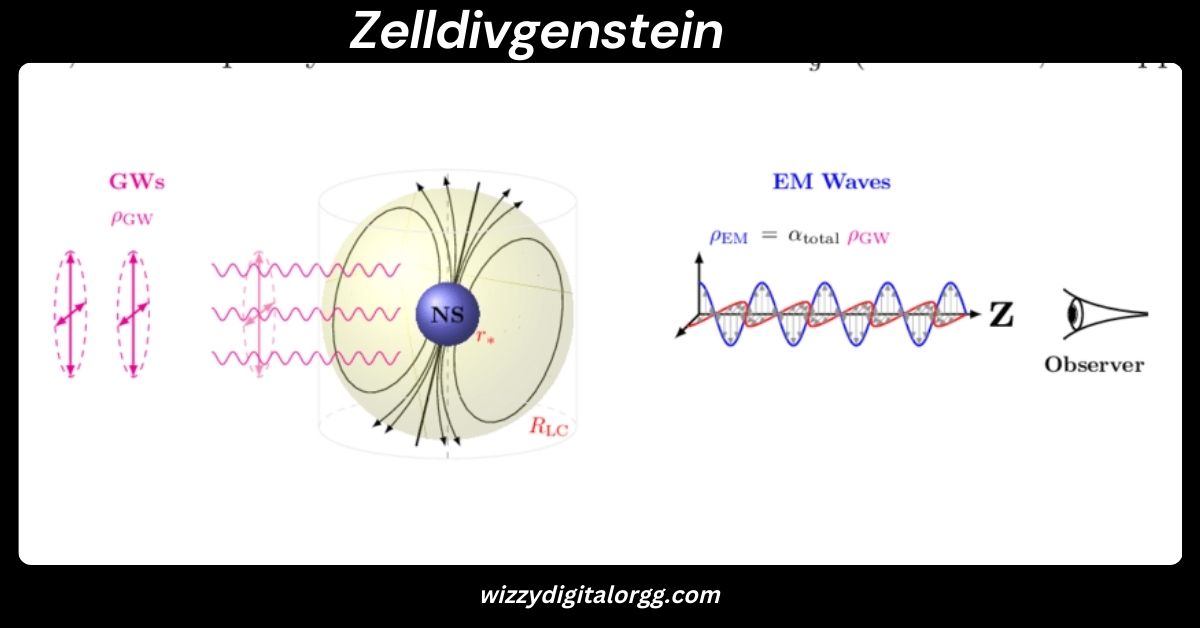
The term “zelldivgenstein” is gaining attention across various fields, but what does it really mean? Whether you’re hearing it for the first time or looking for an in-depth exploration, this article will provide a comprehensive overview of zelldivgenstein, its potential significance, origins, applications, and future possibilities.
We will delve into possible meanings, interpretations, and how this concept may influence various industries.
The Meaning and Origins of Zelldivgenstein
Since “zelldivgenstein” is not widely documented, let’s break it down linguistically and conceptually to explore its potential origins.
- Breaking Down the Word:
- “Zell” could be related to cells, indicating something biological or cellular.
- “Div” might refer to division, commonly associated with cellular division or organization.
- “Genstein” sounds similar to names associated with scientific or philosophical theories (such as Einstein or Wittgenstein).
Given these elements, zelldivgenstein might represent a concept related to cellular structures, genetic sciences, or philosophical approaches to life and matter.

Why Zelldivgenstein Matters in the Modern World
Even though Zelldivgenstein is not a formal scientific term, it helps us discuss several key ideas that are important today:
- How biology and computers are coming together
- How genetics can be edited using tools like CRISPR
- How AI can help design better organisms or understand DNA
- How life might look in the future if we mix technology with living cells
This imaginative term can also help us ask important questions: Should we change life? Who controls these new forms of life? Are there risks?
Possible Scientific Interpretations of Zelldivgenstein
If zelldivgenstein is related to biology and genetics, it could refer to:
- A New Theory in Cell Biology
- The term may represent a breakthrough concept in cellular division, structure, or mutation.
- This could be useful in cancer research, stem cell technology, or microbiology.
- A Scientific Model for Genetic Evolution
- If zelldivgenstein is tied to genetics, it could be a model that explains how genes evolve or interact with their environments.
- This might be applicable in fields such as epigenetics or synthetic biology.
- A Concept in Bioengineering
- Bioengineers may use zelldivgenstein as a framework for understanding how cells can be modified for medical treatments.
- This could lead to advances in tissue regeneration, artificial organs, or genetic therapies.
Also Read: Dozmixsiw154: The Ultimate Guide to Enhancing Performance and Productivity
Philosophical and Theoretical Perspectives on Zelldivgenstein
If the term has philosophical roots, it might be linked to existentialism, logic, or metaphysics. Some possible perspectives include:
- A New Thought Experiment in Consciousness Studies
- Similar to Descartes’ “Cogito, ergo sum” (I think, therefore I am), zelldivgenstein could explore how consciousness emerges from biological processes.
- A Mathematical or Logical Framework
- Inspired by philosophers like Ludwig Wittgenstein, zelldivgenstein might suggest a new way of understanding language, thought, and reality.
- It could provide insights into how humans interpret abstract concepts through logical structures.
Technological and Industrial Applications of Zelldivgenstein
If zelldivgenstein has a technological component, it could be associated with:

- Artificial Intelligence and Machine Learning
- AI models might incorporate zelldivgenstein as a new algorithmic approach to learning and adaptation.
- This could enhance pattern recognition, neural networks, or autonomous systems.
- Medical and Biotech Innovations
- As a biomedical principle, zelldivgenstein could be applied in drug development, genetic engineering, and personalized medicine.
- Quantum Computing and Advanced Physics
- If it relates to quantum mechanics, zelldivgenstein could be a new theoretical framework for understanding particle interactions, entanglement, or computational models.
Also Read: Is Wurduxalgoilds Good? A Comprehensive Analysis
Cultural and Societal Impact of Zelldivgenstein
Beyond science and technology, zelldivgenstein could influence culture, ethics, and the way humans perceive progress. Some societal impacts might include:
- Ethical Considerations
- If zelldivgenstein is related to genetic modification or AI, it raises ethical debates about human enhancement and artificial intelligence autonomy.
- Impact on Education
- A new theoretical framework like zelldivgenstein could reshape curricula in philosophy, science, and technology education.
- Influence on Art and Literature
- Science fiction and speculative literature might use zelldivgenstein as a concept for futuristic storytelling.
- Artists could explore its implications through visual art, film, or virtual reality.
Challenges and Risks
Not everything about Zelldivgenstein is bright and easy. There are real problems we must consider:
- Mistakes in gene editing can cause harm
- AI may suggest dangerous biological ideas
- Biohacking (unauthorized genetic experiments)
- Environmental risks from synthetic organisms
We must always balance curiosity with caution.
How Zelldivgenstein Affects Different Fields
Also Read: Luhoijollxin: The Truth Behind This Mysterious Non-Existent Compound
In Medicine
- Personalized treatments using edited cells
- AI diagnosis tools trained on genetic data
- New vaccines made with synthetic biology
In Agriculture
- Crops that grow faster or resist disease
- Lab-grown meat using engineered cells
- AI managing plant genetics for better yields
In Industry
- Using microbes to produce fuel
- Creating bio-based plastics
- AI finding new enzymes for manufacturing
How to Learn More About Zelldivgenstein
Even though Zelldivgenstein is not a real-world term, you can learn about its connected ideas:
- Study synthetic biology or genetic engineering online
- Follow AI in life science news
- Read about bioethics and futuristic biology
- Join open science communities that explore new technology
Personal View on Zelldivgenstein
As a concept, Zelldivgenstein invites both wonder and caution. It is a lens through which we can imagine the future of life, science, and intelligence. It brings together human creativity with scientific possibility. It allows us to dream, but also to question.
In this age of rapid innovation, ideas like Zelldivgenstein give us a way to explore without boundaries while still remembering our human roots.
Future Prospects of Zelldivgenstein
The potential future developments related to zelldivgenstein depend on scientific advancements and interdisciplinary collaborations. Some key areas of progress include:
- Medical Breakthroughs: If zelldivgenstein is a biological principle, we might see its applications in regenerative medicine or gene therapy.
- Artificial Intelligence Evolution: AI systems could leverage zelldivgenstein as a new way to process information and simulate human-like thinking.
- Philosophical Exploration: Theoretical work on zelldivgenstein could redefine how we understand knowledge, logic, and reality.
Also Read: 9088290335: What You Need to Know
Frequently Asked Questions (FAQs) About Zelldivgenstein
What is the meaning of “zelldivgenstein”?
The term “zelldivgenstein” does not have an established definition but could relate to biology, genetics, artificial intelligence, or philosophy.
Is zelldivgenstein a real scientific concept?
As of now, there is no officially recognized scientific theory called “zelldivgenstein,” but it could represent a hypothetical or emerging field of study.
Could zelldivgenstein be used in medicine?
If related to cell biology or genetics, zelldivgenstein could have implications in biotechnology, gene therapy, and regenerative medicine.
How can zelldivgenstein impact AI and technology?
If the term refers to AI development, it might describe a new model for machine learning, decision-making, or neural networks.
Is there a philosophical connection to zelldivgenstein?
Yes, the term could be linked to logic, existentialism, and the philosophy of science, similar to the work of Wittgenstein or Einstein.
Conclusion
While “zelldivgenstein” is not yet a widely known term, its potential significance spans across biology, technology, philosophy, and artificial intelligence. Whether it emerges as a scientific breakthrough, a philosophical framework, or an innovative technology, the possibilities are endless.
As new research unfolds, zelldivgenstein may become a key concept in shaping the future of human knowledge, innovation, and progress.
Would you like to explore specific areas of zelldivgenstein in greater depth? Let us know your thoughts!



